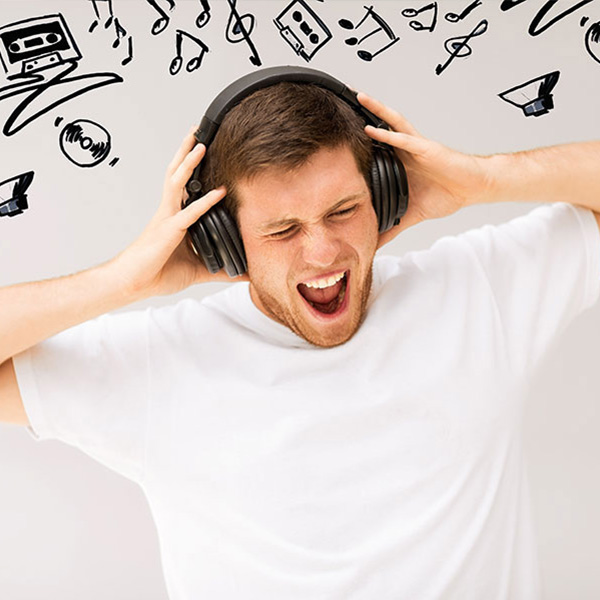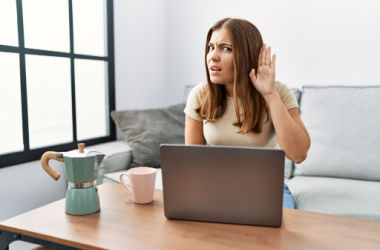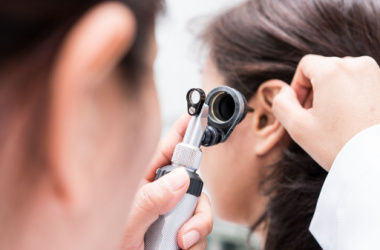
“Take your headphones off!”
"Those things will make you go deaf someday!"
“Will you take your headphones off or should I throw them away?”
How many times have you heard something like this being shouted at you by your parents or other family members? While these things may be annoying, they do have a legitimate point. According to the data gathered by the World Health Organisation (WHO), around 1.1 billion young adults and teenagers are at risk of suffering from hearing loss due to prolonged exposure to loud noise. While there are several risk factors such as loud music in clubs, bars and music concerts, the biggest risk is using headphones for hours.
How do Headphones Cause Hearing Loss?
To answer this question, it is important to understand how hearing works. Sound passes through your eardrums via the hearing bones and reaches your inner ears. This vibration then spreads to your cochlea, a spiral-shaped bone consisting of numerous small hair filled with fluid. The vibration makes the fluid vibrate, making the hair move.
As the noise grows louder, the vibrations become stronger, making the hair move faster. Prolonged exposure to loud noise can eventually cause the hair cells to lose their sensitivity to these vibrations. Sometimes, the loud noises can also cause your hair cells to bend or fold, which can result in a temporary loss of hearing. Since these cells are not capable of regenerating, the damage is impossible to reverse and can cause permanent loss of hearing.
_0.jpg)
Signs of Hearing Loss
Hearing loss caused by excessive and prolonged exposure to noise manifests slowly over a period of time. For this reason, people often don’t realise they have a problem until it’s already too late. Some of the common signs of hearing loss you should watch out for include:
- Muffling of sounds
- Ringing, roaring or buzzing in the ears after hearing a loud noise
- Feeling like your ears are plugged
- Listening to TV at a higher volume than you used to

If you experience any of these signs, it is advisable to stay on the safe side and consult an experienced doctor immediately.
Other Problems Caused by Excessive Use of Headphones
In addition to the loss of hearing, there are several other problems caused by using headphones for long periods. These include:
1. Dizziness
Using headphones for a long while to listen to loud music can create increased pressure in your ear canal. This, as a result, can make you feel dizzy and sick.
2. Vertigo
It is believed that excessive use of headphones can result in vertigo (feeling like the surroundings are spinning). Loud noises can cause damage to your inner ears, making it harder for them to regulate body balance.
3. Ear Infections
Headphones block the air passage into your ear canals, which can lead to bacterial infections. Bacteria can stay on your headphones for a while and spread to others who use them.
4. Ear Wax
Wearing headphones for long durations can result in the development of excessive ear wax, which can lead to ear infections, hearing problems, or tinnitus.
5. Ear Pain
Wearing poorly-fitted headphones for longer durations can cause pain and soreness in and over your ears.
6. Tinnitus
Loud noise can cause damage to the hair cells in the cochlea, leading to a ringing or roaring noise in your ear, medically called tinnitus.
7. Hyperacusis
Those who constantly use headphones to listen to loud music are very likely to develop high sensitivity to normal environmental sounds. This condition is medically called hyperacusis.
8. Skin Problems
Wearing headphones, especially for long periods or during and after workouts, can cause acne breakouts or skin infections. Since moisture and sweat collect on and around your headphones, it can allow the multiplication of bacteria. Moreover, additives in plastic and rubber can lead to contact dermatitis.

Now that you know just how many problems the excessive use of headphones can cause, it's much wiser to take time away from them. If you feel like you are experiencing any of the above-mentioned problems or signs of hearing loss, it's highly recommended to consult an Paarvati Devi Hospital doctor right away. Need more information?
